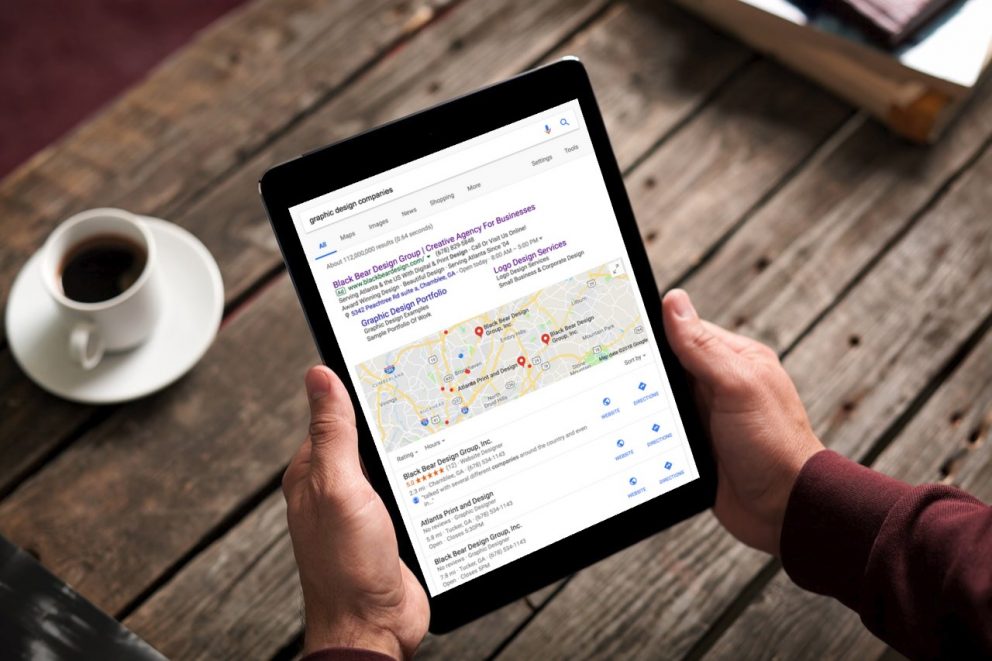How Will Mobile-first Indexing Affect SEO?
By Black Bear Design on 04/26/2018
Recently, Google unveiled yet another in its ongoing efforts to make the web better reflect how we search for things online. This time it’s focusing on searches using a mobile device. But there’s a lot of confusion around what mobile-first indexing means – and how it will impact customers finding your business. So let’s start with some basics:
- Google is one of the most popular mobile apps in the United States.
- 48% of buyers use smartphones to start a search making mobile the dominant platform.
- Google drives 96% of mobile search traffic, followed by Yahoo at 2% and Bing at 1%.
- 51% of all digital ad budgets in 2016 were spent on mobile.
- 80% of social media time is spent on a mobile device.
- 57% of users say they won’t recommend a business with a poorly-designed mobile site.
What does Google’s mobile-first search update really mean for you? As usual, it depends. Click To Tweet
Mobile-first indexing means that the mobile version of your website will become the baseline for how Google determines rankings and how it appears in results. Mobile-first will push the mobile version of any website to the top in the indexation process. So, does that mean you have to change your website? If it’s already mobile-friendly, will that be good enough for Google?
Short answer: Yes. If you have already optimized your site for both mobile and desktop by using responsive website design, you’re already ahead of the curve, and you should not, in theory, have issues moving forward.
However, if you have had two separate sites such as www.site.com as your desktop website and m.site.com as your mobile site, Google will more than likely rank your mobile site higher in search results, even if it hasn’t been optimized in the same way your desktop version has. This mobile-first ranking could be a problem if you aren’t ready for it, and there are two ways to fix it.
The first option is to start heavily optimizing your mobile site, but changing backlinks or attempting to get backlinks isn’t going to be nearly as easy as it was for your desktop site. The other way is to merge the content by doing 301 redirects from your mobile site to what should be your now mobile-first responsive designed site.
If Google has started rolling this out, how soon do you need to make your site mobile-first indexing friendly? Soon. They started testing the most mobile-ready sites back in June 2017 and posted the following on their Webmasters Blog in December 2017:
“We continue to be cautious with rolling out mobile-first indexing. We believe taking this slowly will help webmasters get their sites ready for mobile users, and because of that, we currently don’t have a timeline for when it’s going to be completed.”
“We will be evaluating sites independently on their readiness for mobile-first indexing and transitioning them when ready. This process has already started for a handful of sites and is closely being monitored by the search team.”
When will mobile-first indexing start to impact your website search results?
Every site is different, especially when it comes to traffic, so this will take some preparation, but now’s the time to get started on mobile-first indexing planning. If you don’t already have a mobile-friendly website, put responsive redesign at the top of your 2018 marketing plan. (Responsive design allows your website to look good and function well on every device from desktop to mobile.) Overall, there has been a large surge in mobile searches, and usage and it’s important to react to this shift. If your competitors have mobile experiences, but you don’t, it could eventually negatively affect your site because their websites will be boosted on both mobile and desktop search versions.
How do I make my site mobile-first indexing friendly?
To begin with, you’ll want to take a look at several factors such as rankings, traffic, and how people are currently using your site. If you already have a mobile site, now’s the time make some tweaks to speed it up, make sure design elements are optimized, and address other issues surrounding mobile responsive design.
If you have a mobile site AND a desktop site and they have different content, focus your efforts on the mobile site. Take some time to optimize images, content, internal and external links as well as compressing images and code, and making sure that your mobile site is more optimized than your desktop. At some point though, you’ll want to consider moving to one site with responsive design, so you don’t have to deal with two websites, canonical errors on pages, redirects, etc. – all things that can negatively impact your website in search and user experience.
How do I improve mobile-first indexing?
Here are the first three things we recommend focusing on to help your mobile-first indexing reach:
Page Speed
Google appreciates a website that is fast, especially for mobile, but also for the desktop experience. The longer it takes to load, the more likely people are to abandon your page. Focus on eliminating extra code, minifying code, and compressing images.
Internal Links
These are important because it’s you telling not just Google what pages you think are important, but also what content is connected. Use your services, products, and blog pages to link to relevant pages within your content. To keep things straight, think about creating a crosslink dictionary to help understand which buckets of keywords can be used for which pages.
Strong Content
Helpful, on-page content is important to your visitors and to Google. But don’t forget about impactful images that are marked with image alt tags, and to target the right keywords for the right pages and posts. Think about using short and medium tail keywords for your services, products, and other top navigation pages, while your blog posts can target longer tail keywords and used to answer user questions.
Still feeling a little lost in the Google forest? As Atlanta web design and search engine optimization experts, Black Bear Design is here to help you find your way. Please contact us today to get started on creating your mobile-friendly website plan or beefing up your search engine optimization strategies.













2 responses to “How Will Mobile-first Indexing Affect SEO?”
If you have not updated your website to be mobile optimized, you have probably saw a drop in rankings over the last couple of months. I have seen some industry reports that have mobile usage at 90% of overall traffic of certain websites. That could really hurt a business if you drop rankings on that much search traffic.
Great article, thanks for the heads up.